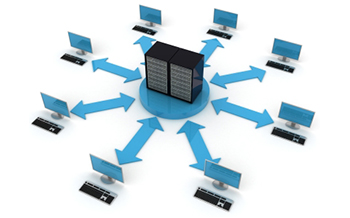
How SMBs Can Utilize the Cloud To Build Their Business
There has been a lot of talk lately about the cloud and its ability to put small to midsize businesses (SMBs) and startups on a level playing field with large global enterprises. Can this be substantiated or is it a load of trendy hype to push SMBs to cloud-based solutions? We’ve compiled this breakdown of how the cloud can be used to boost profitability.The Convenience Factor
It once took smaller companies and startups weeks to launch and configure their own IT infrastructure. Doing so also required a ton of overhead costs. Today’s cloud technology provides the benefits of this very same infrastructure but on an as needed and on-demand basis. SMBs can build a technology infrastructure for themselves online in less than a minute.
For example, a smaller agency that provides apps for its clients, can turn to a Platform-as-a-Service (PaaS) cloud provider. A PaaS provides companies an environment that enables them to more easily host and deploy apps. They do this by shielding developers from the hassles that come with the set up, configuration, and management of things like servers and databases.
Without having to worry about things on the infrastructure side, the company and its application developers can focus on creating innovative apps that will generate business revenue. Once their server is online and available, they can launch instantly with a 1-click deployment of their application.
Mission Critical Agility & Scalability
In the tech industry, everyone must channel his or her inner Maverick and Goose* because there is a need... a need for speed. Speed is everything and agility is mission critical. The cloud’s rapid provisioning of computer resources can offer additional storage space in mere minutes rather than weeks.
Having that kind of agility bodes particularly well for the scalability needs of SMBs. As business grows and the need to store more data increases, the cloud is flexible enough to resize your infrastructure on the fly and grow with you.
The cost of cloud-based solutions is much more beneficial to SMBs than the cost of traditional shared or dedicated hosting plans. This eliminates the high overhead that comes with buying dedicated hardware and hiring staff to run the servers.
Cloud technology has empowered SMBs by eliminating any need to make the same kind of costly upfront investments that large enterprise are able to incur. There is no longer a need for SMBs to spend thousands of dollars building out a massive infrastructure to support their big data applications. Better yet, backing up that big data is also inexpensive compared to traditional hosting solutions.
* Top Gun, 1986, in case you were wondering

Comments
Post a Comment